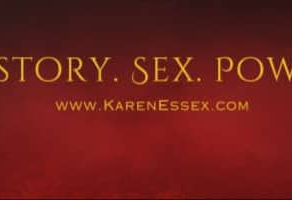Interview with Lori Perkins
Lori Perkins has edited more than 25 anthologies, most of which have been erotic romance. She edited the first zombie romance anthology, which started as a double dare from some horror writers who thought that zombies could not have the romantic appeal of the vampire. More than 200 authors submitted short stories for what became Hungry for your Love.
Perkins has also taught journalism and writing at NYU for 20 years, and has been a literary agent for three decades.
She is a native New Yorker, who loves the Yankess.
What are your favorite books, and why?
1984, because it showed me a future of the past that scared me to my core, and now is frighteningly relevant.
Dracula, a wonderful, atmospheric horror story that still grips us.
Alice in Wonderland. I read this when I was 7 and really identified with smart-ass Alice, one of the few smart-ass girls I ever read then. I've reread it at least 20 times, and there is always something new.
Gone with the Wind. The book was actually better than the movie.
Where did you grow up, and how did this influence your writing?
I grew up in Washington Heights in New York City. I grew up in a diverse neighborhood, where the patron saint of immigrant rests in one of the few Catholic shrines in America. Washington Heights had more German Jewish Holocaust survivors than anywhere in the world (including Israel), so I have always been very aware of man's inhumanity to man on a daily basis.
It was also a neighborhood of many different stories. I became the publisher of the local newspaper when I was 22 because the local paper went out of business and I couldn't imagine our neighborhood without a place to tell our stories. New York is in my blood and I take it with me wherever I go and I always tell the small stories that make New York City the big city it is.
When did you first start writing?
I wrote my first story when I was in first grade. I wrote really bad erotica to pass around to my classmates in 6th grade. I've been writing for almost as long as I can remember.
What's the story behind your latest book?
Two Dukes are Better Than One (written with Jamie Schmidt under the Lorna James pseudonym) was inspired by Loretta Chase who said at a romance conference that she was afraid she was "duked out, " to which I replied, "dukes are like vampires. You can always reinvent the mythos." She asked me how. And I answered, "Duke ménage." And Two Dukes are Better Than One was born.
Describe your desk
A mess. Einstein would be proud. I have a paperweight from Margaret Mitchell's house in Atlanta, and another of an Alexander McQueen spiked heel from the Met.














.jpg)
